

Year 2: Advanced Development and Professional Skills
Year 3: Specialization and Industry-Ready Projects
This module offers an immersive experience designed to equip students with a foundation of study skills necessary to be successful in Computing. Students will be introduced to a broad range of computing concepts and how to apply them to design and develop a small software concept.
This module will introduce students to the fundamentals of networking and networked systems and will develop the understanding they need to investigate relevant computer network standards and protocols. Students will learn the necessary about skills to set-up and configure a Local Area Network through lab work, by handling devices and using simulators.
This module builds directly on the Introduction to Programming module. Students will gain the ability to further analyse, design, implement, test and debug more complex programs using an appropriate programming language. Key skills related for logical thinking, code design and alternative ways to code and debug will be explored in this module.
Gradually, we are becoming more and more dependent on computing systems in our daily lives. The services provided by these systems, such as online shopping, social networking, mobile banking and so forth represent the backbone of modern communities. This module will introduce the key security concepts, access control mechanisms and tools to protect the computer systems from harm.
Within an interactive and stimulating learning environment, you will work in teams to discuss and explore a variety of systems. This will develop an in-depth understanding and the practicalities of database design and implementation which you can add to your programming skillset.
This module presents a broad range of basic games development concepts and provides foundation for further study in the field. Students will develop an understanding of commercial practices in game development and will be introduced to methods and technologies for game development. The module will also cover mathematical concepts needed for computer games development.
This module will focus on the software development lifecycle, with students learning how to identify requirements, analyse, design, code and test a software application. Students will also learn alternative styles used in the industry and which ones are suitable for a given context.
This module will enhance the student’s programming competence and ability to use a range of programming techniques necessary for the development of effective and quality software. Students will learn how to select and apply appropriate data structures and algorithms to implement a software solution to a complex problem. Object-oriented and event-driven programming paradigms will also be introduced in this module.
This module will teach students the agile way of designing and developing solutions. Since this is fast becoming an industry recognized way of developing solutions, students will get an opportunity to learn how to apply theory to practice and develop agile software by having regular meetings, monitoring progress and refining the solution as the project moved along.
The module will develop core skills among students to think and develop computational solutions. Since problems may have many alternative solutions, students will learn the pros and cons of each and which type of solutions are most suitable for a given system or application.
In this module, student will learn to examine a range of vulnerabilities and attacks on computer systems and networks. This module will help develop an understanding of advanced methods for protecting communication and computer systems, and the need to have a systematic approach to computer security.
This module aims to develop an understanding of contemporary mobile development platforms and skills required to develop applications for mobile devices (phone and tablets). Students will explore a range of technical problems and solutions inherent in developing software applications for mobile computing: connectivity, security, data storage. Interactive mobile application: gestural input, location awareness, on-board-sensing (e.g. accelerometers) will also be taught.
The module takes a rigorous approach to software development. It examines the use of formal methods for the specification, development and verification of software. It presents a range of techniques for the analysis and implementation of real-time solutions. The student will investigate the theory and problems of concurrent systems.
This module aims to teach students how systems and applications can be built for distributed environments. Since data and clients using the applications are likely to be spread over geographical and system boundaries, it is important to learn if a centralized or a distributed type of system is more suitable. This module will introduce the theory and key concepts to develop such distributed systems.
The double module project will involve research, independent study and the production of a substantial report, which will be based on the investigation of a problem and the development of a solution. This project will be the culmination of the student’s study and will draw substantially on the material and skills developed during the course.
Large volumes of data, commonly known as ‘big data’ are generated and stored by retail stores, online-shopping websites, or other transaction systems. This big data is now considered a very rich resource for information, especially for the strategic and commercial growth of a company. This module will teach students how to apply formal concepts to extract and analyse meaningful information from such large datasets, find hidden patterns, measure similarity etc.
Computer graphics are a vital part of modern human-computer interaction but are highly resource intensive. You’ll explore the algorithms and hardware that attempt to meet the demands of real-time rendering of 2D and 3D graphics. You’ll be introduced to mathematical techniques used to represent and manipulate images and explore how graphics libraries are used to produce more complex and realistic graphics. You’ll be able to extend your programming skills to the generation, manipulation and display of graphical images using a popular graphics library
This module aims to introduce and familiarize you with the approach and techniques of Artificial Intelligence. It will introduce you to AI in the context of computer games and will explore some of the theoretical underpinnings of AI and Computing
On this module you will foster an understanding of the needs, abilities, limitations of computer users, of the techniques and technologies that can enable users to communicate effectively with computers, and the impact of user experience in this context. You’ll develop the knowledge and skills necessary to enable you to model, design and evaluate interfaces with a focus on user experience. You will enhance your desire, skills, and confidence to research HCI and UX topics for themselves.
Graduates are well-prepared for roles in software development, mobile app development, game development, cloud engineering, and more.

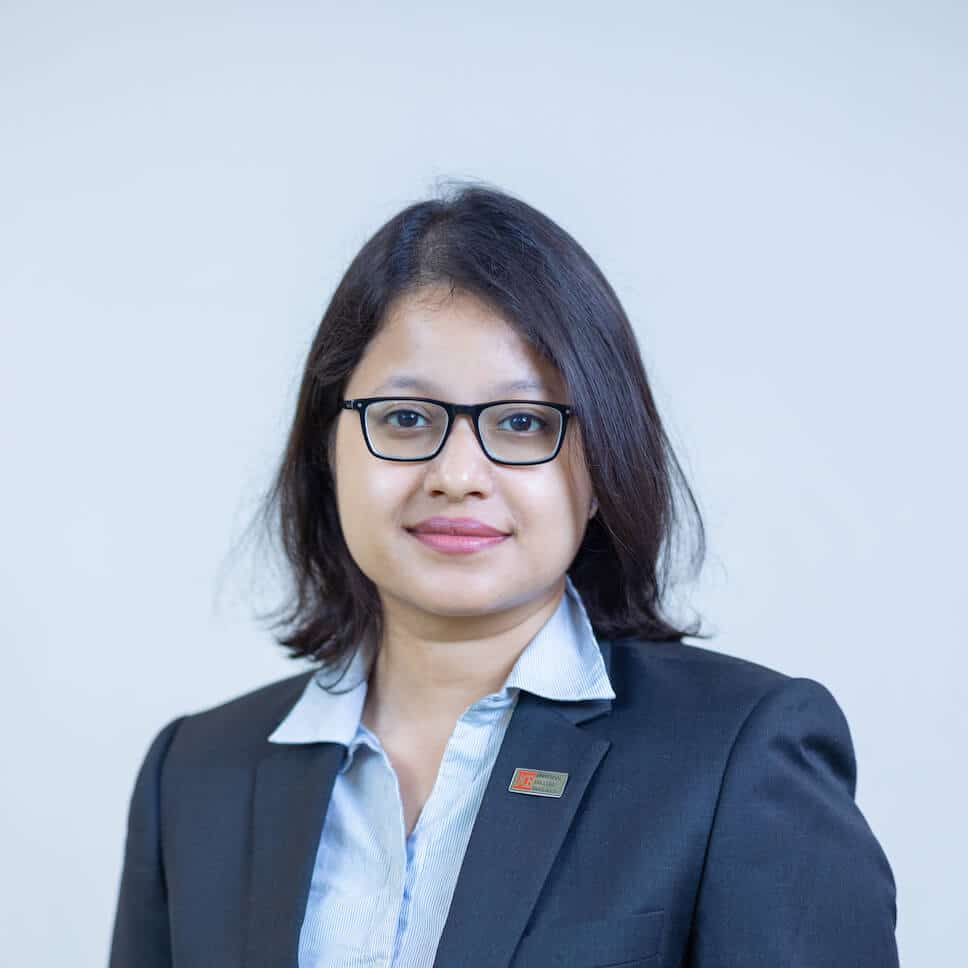
Lecturer

Lecturer
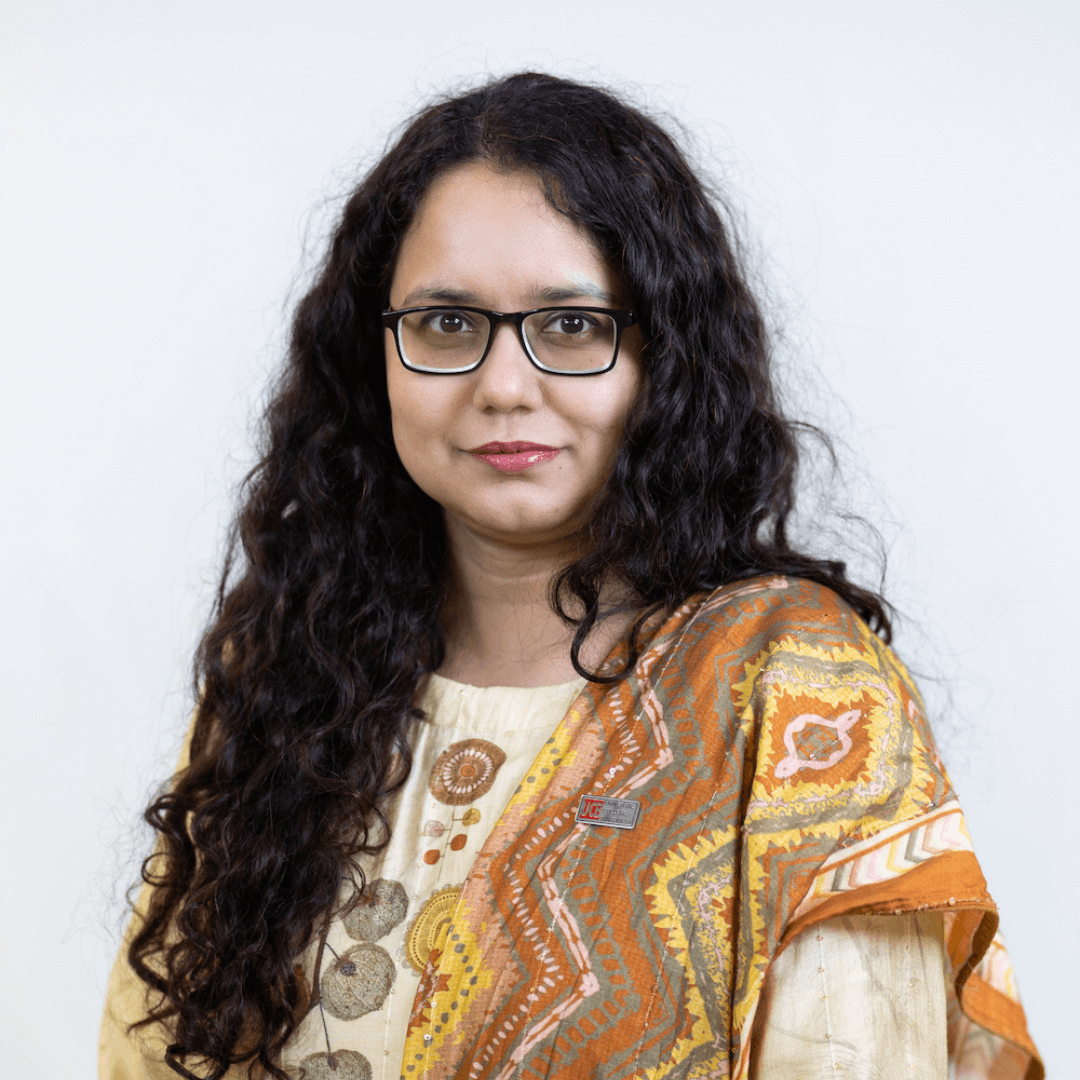
Senior Lecturer

Senior Lecturer



Lecturer
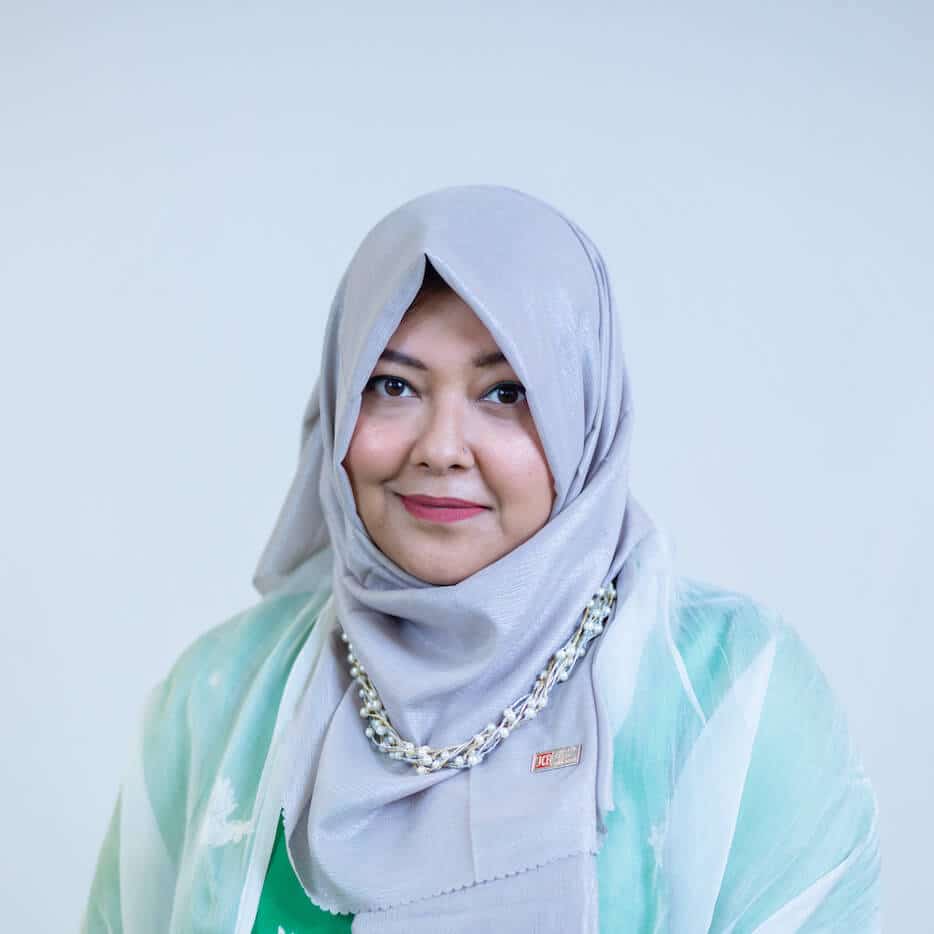
Senior Lecturer

Senior Lecturer
Ms Farin Daula is working as a senior lecturer at UCB. She is a trained education professional from the UK and has a degree in Education and English from University of Surrey, UK. She also holds a Master’s in management from Westminster University, UK. Ms Farin received her teacher training at the department of Continuing Education, University of Oxford, UK. Ms Farin is the founder of the education platform, One Circle. She is a certified mental health first aider and a life coach. She has extensive experience in the life-skills education sector, working in various schools and non-profit organizations in London and Dhaka. She is the author of the Tara and Joy children’s book series. The first book of this series called “Tara and Joy: Body Safety” is available now both in Bengali and English version.
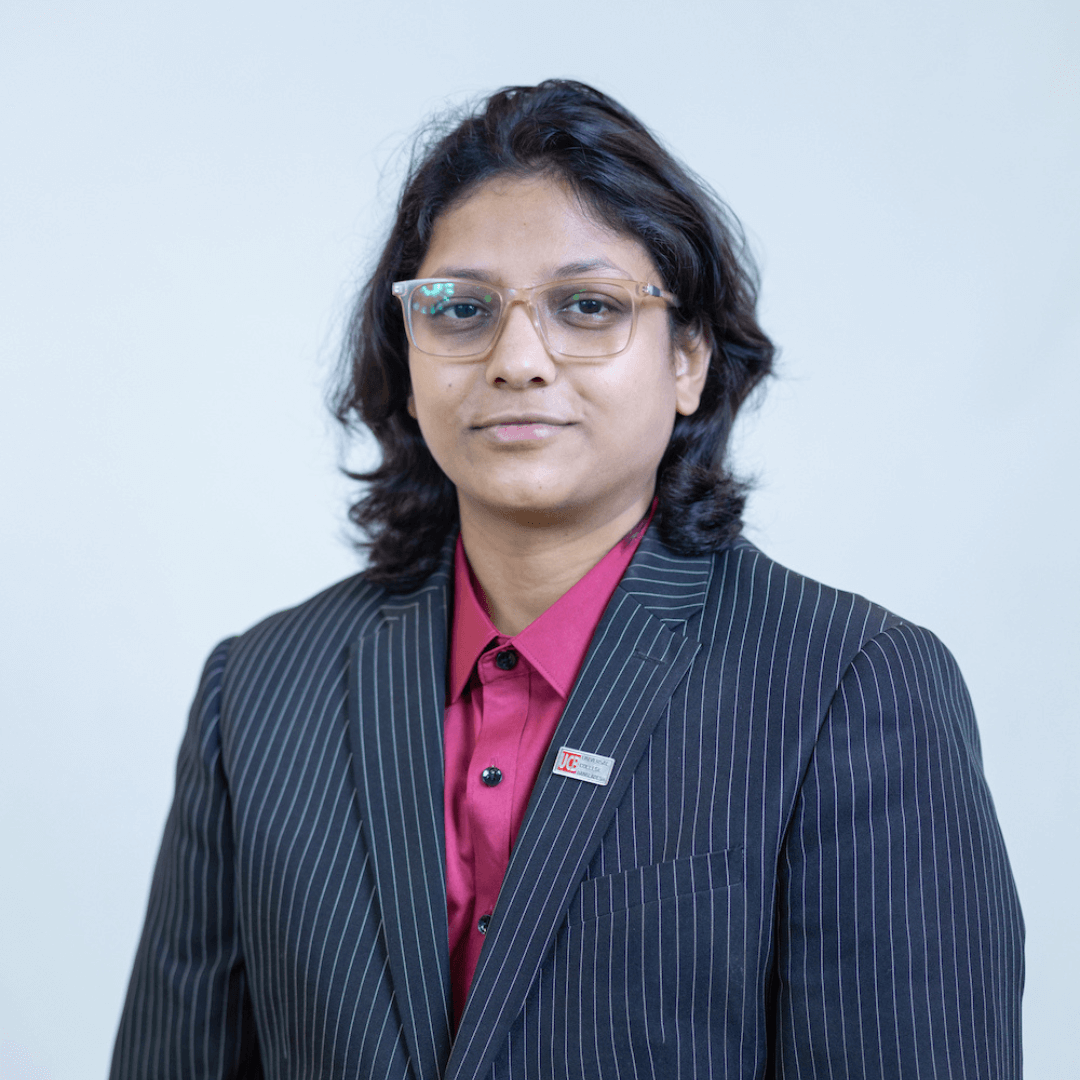
Senior Lecturer
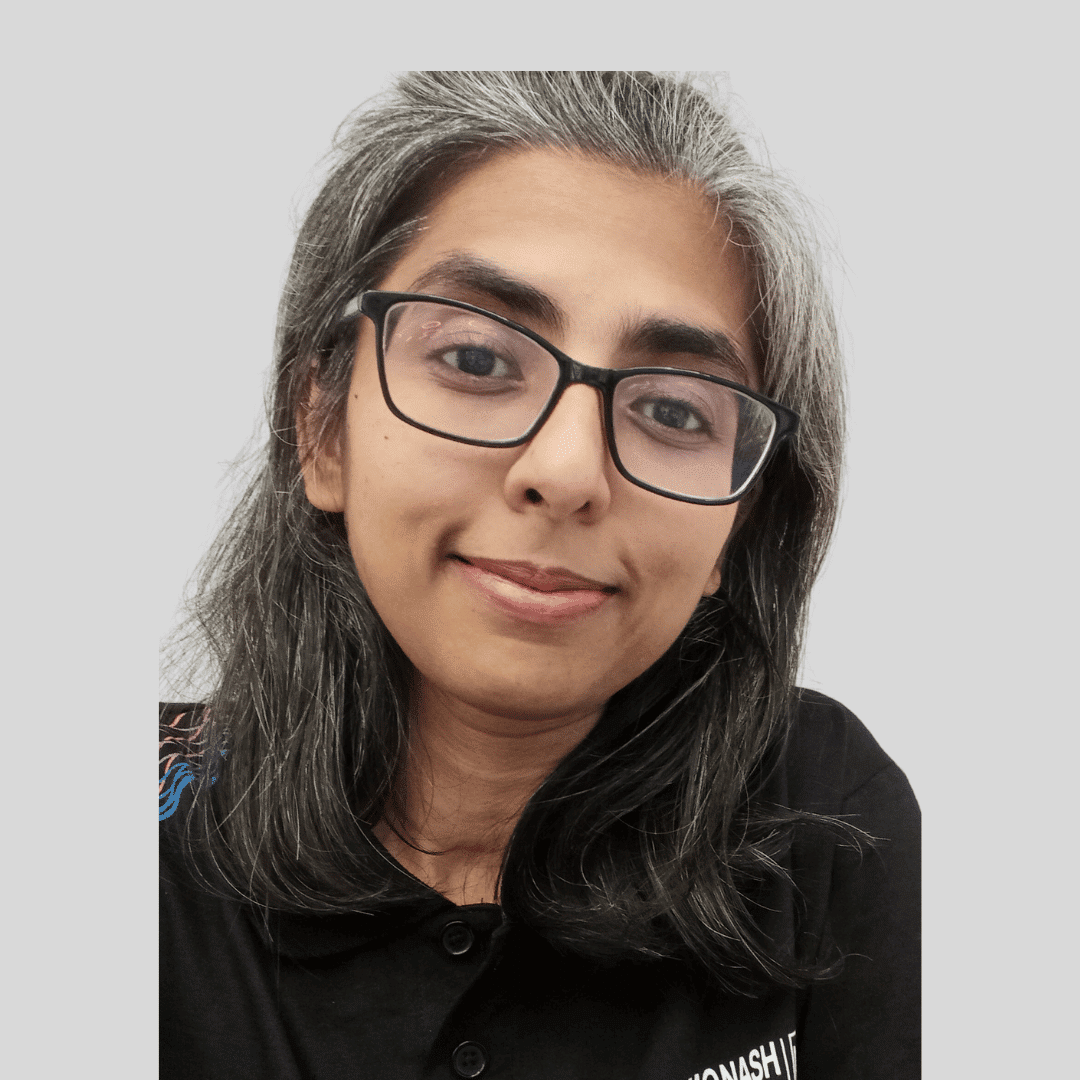
Assistant Professor
Dr. Sadia Afreen is an assistant professor at the Universal College Bangladesh (UCB). She completed BSc in Chemical Engineering from Bangladesh University of Engineering & Technology (BUET). She obtained her PhD from the University of Nottingham and then completed her postdoctoral research at Nanjing University in the field of chemical engineering. Her research expertise is in applied chemistry and nanotechnology. She has significant publications in her areas of research, and she contributed as a journal reviewer to prestigious journals in her fields of expertise. She earned the Postgraduate Student Teachers Certificate during her postgraduate study at the University of Nottingham. She worked in the hall committee, conference committee at the University of Nottingham; teaching and learning subcommittee, and program coordinator in the Monash College MCD program at UCB. She worked in industry and had several engineering and research training at home and abroad.

Professor & Dean of Academic Affairs
